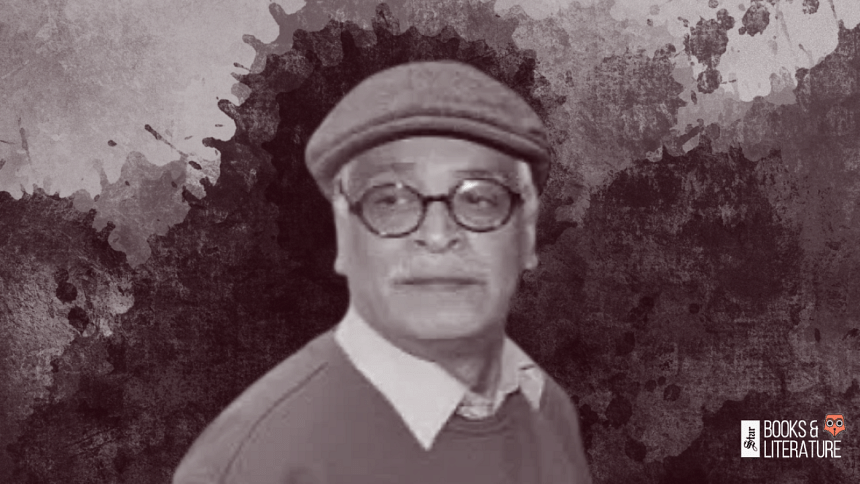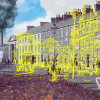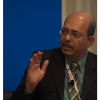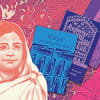The poet who declared birth was his eternal sin

Poets were associated with soothsayers, tellers, or seers in ancient cultures. Was Daud Haider one too? Did he foresee his stateless future in his poetry? We might never know. Poets are mysterious in their own ways. They take their mysteries to the grave, leaving us mortals to keep finding new clues.
Poet Daud Haider breathed his last in Germany on April 26. He was injured after falling from the stairs in his apartment, where he lived by himself.
The verse mentioned in the title is probably his most famous line—"Jonmo E Amar Ajonmo Paap". This poem holds the genius that Haider had as a young poet. He expresses his despair—the feeling of being lost and searching for meaning through existentialism. His internal battles lead to him putting the blame on himself for the suffering he faces and, in turn, the suffering that is faced by others. Hence, he concludes, birth is his inborn sin, the mistake he can never fix.
His first book, which had the same name, Jonmo E Amar Ajonmo Paap, speaks of love, despair, and another pivotal event—the Liberation War of 1971. These emotions were intermingled with his poems; for instance, "Tumi E Amar Premika" tells the story of a lover who went to war to gain the freedom to love in a liberated country. These were written in a time when the country was engaged in resisting West Pakistani oppression—the Mass Uprising of 1969 and its aftermath. The poem, "Amio Shahid Hoye Jabo", expresses his wish to become a martyr like Asad. Like a sincere reporter, Haider's poems work as a document of these turbulent times.
Haider's later transformation in his tone cannot be explained without another event he faced—exile from his home country at the age of 22. For a poem titled "Kalo Shurjer Kalo Jotsnay Kalo Banyay", published on February 24, 1974, he was charged with hurting popular sentiment and, as a result, he was captured on March 11 of the same year. He was later released on May 20, 1974, and exiled to Kolkata on May 21. There he remained for 13 years before moving to Germany, where he stayed till the end of his life.
Following his exile, his poems were filled with the sorrow of not being able to return to his homeland. His poem, "Tomar Kotha", written in Kolkata, is a heartbreaking reflection of that emotion, when he says he wishes to "scream to the sky" and say, "My home is on the other side", and that he feels as if he is now "a foreigner, alone". "Dhritorashtro Bilap" speaks of the despair he feels while contemplating the place of his death—will he lead his life fleeing from one place to another?
Je Deshe Shobai Ondho (1984) is another book where the tone is much more critical of the then political establishment in Bangladesh. The namesake poem, "Je Deshe Shobai Ondho", expresses his frustration about his country being filled with darkness, and "Shadhinota Mirttyur Cheyeo Boro" laments the unfreedom everyone has to deal with in their day-to-day life. The same youth who used to consciously rebel and break rules, and had fought a bloody Liberation War, have been caught up in fear—they have to check whether they are alive or not every morning. He concludes that "independence" is just the centralisation of financial and ruling power to a select few, where everyone else is bereft of their right to food, shelter, or even life. The poem "Amra Shobai Neta" mocks the political establishment, where everyone wants to be a leader so that they can oppress people in their regime.
Haider never accepted German citizenship and carried a special UN Visa which stated that he was "Stateless (Bangladesh)". In his interview with The Indian Express in 2019, he mentioned that he was a Bangali and an Auslander (outsider), and he wanted it to remain that way.
His other works include Songs of Despair (1992), Ei Shaon Ei Porobashe (1982), Banishment (1979), among others. He had an autobiography titled Illin Jhillin. He wrote both in English and Bangla, and the controversial poem mentioned before, "Kalo Shurjer Kalo Jotsnay Kalo Banyay", was written in both Bangla and English verse. He earned "The Best Poem in Asia" from London Society for Poetry for one of his poems.
It is unfortunate for us, as a nation, that he was never able to return to Bangladesh after his exile in 1974. He did wish to return to the country several times under different governments, but was unable to do so.
However, he lived as a free being, true to his poetry. Maybe that was what he was destined to be—a stateless poet, a cosmopolitan voice against authority. He has been claimed to be the first exiled poet in Bangladesh, and he certainly is, but he is also far more than that—he is a Nietzschean hero who had found his music and sang to it.
Goodbye, Daud Haider. You will be remembered. You will continue to inspire new generations of poets and well-wishers of the country.
Sadman Ahmed Siam, as the name suggests, is indeed a sad man. Send him happy quotes at: [email protected].

 For all latest news, follow The Daily Star's Google News channel.
For all latest news, follow The Daily Star's Google News channel. 








Comments